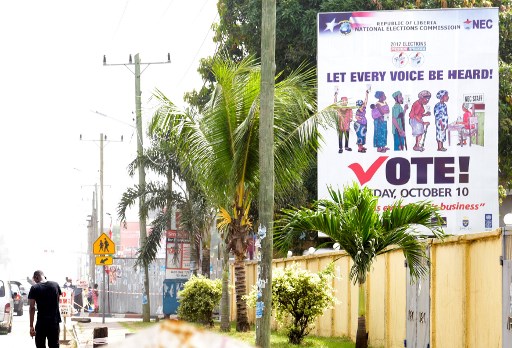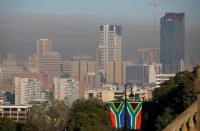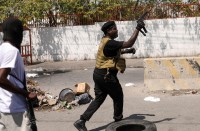
MONROVIA, Liberia (AFP) – Liberia, which elects a new president in a run-off on Tuesday, is an English-speaking nation in West Africa that still bears the scars of a gruesome civil war and a devastating Ebola outbreak.
Here is a snapshot of the country:
Oldest republic in Africa
In 1822 the United States starts sending freed black slaves to a part of West Africa that eventually becomes Liberia. The new arrivals declare independence in 1847, establishing the first republic in Africa.
Descendants of former slaves run the country until the assassination in 1980 of president William Tolbert in a coup led by Samuel Doe, who establishes an authoritarian and corrupt regime.
Doe is captured in 1990 and tortured to death by men loyal to warlord Prince Johnson, who ran unsuccessfully as a presidential candidate this year in the first round of voting on October 10.
14 years of civil war
The National Patriotic Front of Liberia (NPFL) of Charles Taylor launches a rebellion in December 1989 in the northeast that quickly takes control of most of the country but not the capital, Monrovia.
The civil war involves seven rival factions until it ends under a peace accord in 1997.
In the elections that follow, Taylor is elected president.
Violence again erupts in 1999 when another rebellion flares and Taylor loses control of much of the country, fleeing in 2003 to Nigeria.
The death toll from 14 years of civil war is estimated at 250,000 with hundreds of thousands of people displaced. Some of the worst abuses are perpetuated by government forces.
In 2012, Taylor is convicted by an international criminal court of 11 counts of war crimes and crimes against humanity.
First female leader in Africa
President Ellen Johnson Sirleaf becomes Africa’s first female head of state in 2005 when she wins presidential elections.
“Ma Ellen” wins relection in 2011, and a month later is co-awarded the Nobel Peace Prize as a champion of women’s rights.
The 79-year-old has served two terms and so was barred from standing in 2017’s election.
Worst-hit by Ebola
Liberia suffered the most deaths in West Africa’s 2014-16 outbreak of Ebola.
The virus killed 11,300 people in three countries, more than 4,800 of them in Liberia.
A recovering economy
The years of civil war devastated the economy and infrastructure of Liberia, which is rich in natural resources including rubber, iron ore and palm oil.
Growth stagnated at zero percent over 2014 and 2016 because of the Ebola outbreak and a fall in commodity prices, the World Bank says.
But prospects were better for 2017 with gold production and improvements in service likely to account for better economic performance, it says.
Most of the population of 4.7 million people lives without basic services such as water and electricity.







